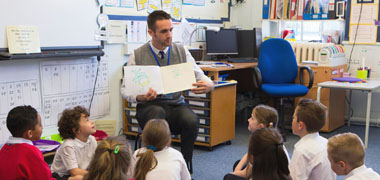
Courses for beginners
There are no courses available in Melbourne Victoria for beginner learners with no prior experience or qualifications.
Courses for experienced learners
There are 3 courses available in Melbourne Victoria for experienced learners with prior experience or qualifications.
Master of Education (Research)
- There are no mandated entry requirements.



Master of Education
- There are no mandated entry requirements.




Graduate Certificate in Educational Research
- There are no mandated entry requirements.
 The University of Melbourne
The University of Melbourne
Key questions
How can I become a education researcher?
To become a education researcher in Melbourne, you may want to consider completing the Master of Education (Research). This qualification will equip you with the skills and knowledge necessary for a career in this industry.
Are there training providers in Melbourne?
You can train to become a education researcher by completing a qualification with Deakin University or La Trobe University. Find a course provider near you. Once you make an enquiry, a course advisor will get in touch to discuss your study options and course fees.
What study modes are available?
There are several campuses within the Melbourne area that provide education researcher training. The closest campus is 6km away from the center of Melbourne. You can also study a education researcher course through online learning. Find a course provider that best suits your study needs.
Related occupations
Explore related occupations in the education researcher sector.
Classics Teacher
Classics Teachers instruct secondary students in ancient Greek and Roman languages and cultures, developing lesson plans and engaging in regular teaching duties.
Academic Researcher
Academic researchers collect and analyse data to expand knowledge in their field, publishing findings to effect real-world change.
University Professor
University Professors teach at universities, develop curricula, supervise postgraduate students, and engage in research and writing activities.
Anthropologist
Anthropologists study human societies through fieldwork and research, applying their findings to address real-world issues or pursuing academic careers.
Sociologist
Sociologists analyse human behaviour's impact on society, conducting research to address issues like criminal justice, education, and public health.
Social Researcher
A Social Researcher investigates social issues and trends through data collection and analysis, informing policy and practice in various sectors.
Geographer
A Geographer analyses Earth's features, studies human-environment interactions, conducts fieldwork, and supports urban planning and conservation efforts.
Conservation Researcher
Conservation Researchers study ecosystems and wildlife to inform conservation efforts, requiring strong analytical skills and a passion for the environment.
Geomorphologist
A Geomorphologist studies landform evolution, conducts surveys, analyses geological data, and advises on sustainable land use and conservation projects.
Historical Researcher
A Historical Researcher investigates past events and societies, producing detailed reports while analysing documents and presenting findings.
Philosophy Teacher
A Philosophy Teacher instructs on philosophical theories, ethical dilemmas, and critical thinking, fostering independent thought through discussions and assessments.
Cultural Anthropologist
A Cultural Anthropologist studies societies and cultures through fieldwork and analysis to enhance understanding and preserve cultural heritage.
Director of Education
A Director of Education oversees programme development and policy implementation, leading teams to enhance educational standards and outcomes.
Further reading


How to start a career in Education Support and Assistance
7th December 2021)
